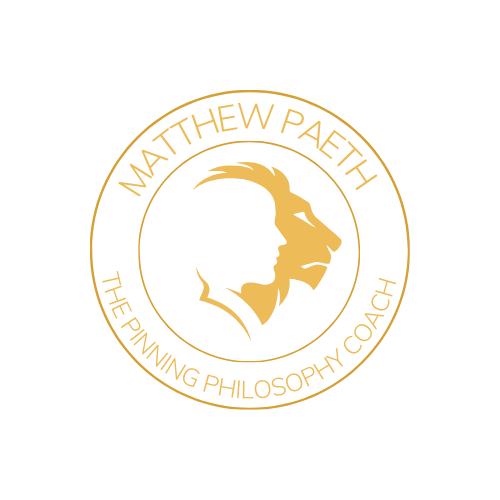
The Ultimate Guide to Athlete Recovery and Self-Care
Athletes push their bodies to the limit, but without proper recovery, they risk burnout, injuries, and decreased performance. To stay at the top of their game, athletes must incorporate a comprehensive self-care strategy that balances physical recovery and mental well-being. This guide covers the best recovery practices for athletes to help optimize performance, prevent injuries, and maintain long-term wellness.
Physical Recovery Strategies for Athletes
1. Prioritizing Rest and Sleep
Quality sleep is the foundation of muscle recovery and overall health. During sleep, the body repairs damaged tissues, releases growth hormones, and restores energy levels. Athletes should focus on:
Maintain a consistent sleep schedule (7-9 hours per night).
Creating a restful environment (cool, dark, and quiet).
Avoiding screens before bed to improve sleep quality.
Bonus Tip: Track sleep patterns using a smartwatch or app to identify areas for improvement.
2. Hydration: The Key to Performance & Recovery
Dehydration can impair athletic performance, cause muscle cramps, and slow recovery. To stay hydrated:
Drink water regularly throughout the day (not just during workouts).
Use electrolyte drinks during intense training to replenish lost minerals.
Monitor urine color (pale yellow indicates proper hydration).
3. Nutrition: Fueling the Body for Optimal Recovery
A well-balanced diet is critical for muscle repair, energy replenishment, and overall recovery. Key nutrition strategies include:
Protein: Essential for muscle repair and growth (chicken, fish, eggs, or plant-based protein).
Carbohydrates: Replenish glycogen stores (whole grains, fruits, and vegetables).
Healthy fats: Support overall health (avocados, nuts, and olive oil).
Post-workout meals: A combination of protein and complex carbs helps accelerate recovery.
4. Stretching and Mobility to Prevent Injuries
Improving flexibility and mobility reduces the risk of sports injuries and enhances performance. Athletes should include:
Dynamic stretching before workouts to prepare muscles for movement.
Static stretching after workouts to relieve tension and soreness.
Mobility exercises like yoga to improve range of motion.
5. Massage and Foam Rolling for Muscle Recovery
Self-massage techniques, such as foam rolling and sports massages, help:
Increase blood circulation for faster healing.
Reduce muscle tightness and soreness.
Prevent long-term injuries caused by muscle imbalances.
6. Ice Baths and Cryotherapy for Recovery
Cold therapy is a proven method for reducing inflammation and muscle soreness. Athletes can:
Take ice baths after intense workouts to limit tissue damage.
Use cryotherapy sessions for whole-body recovery.
Consult a professional for personalized cold therapy guidelines.
7. Active Recovery: Movement on Rest Days
Low-intensity activities keep blood flowing and aid in recovery without stressing the body. Effective active recovery workouts include:
Walking or light jogging
Swimming or cycling
Yoga or mobility drills
Mental Recovery Strategies for Athletes
1. Mindfulness and Meditation for Mental Clarity
Practicing mindfulness helps athletes manage stress, stay present, and enhance focus. Simple meditation techniques include:
Deep breathing exercises
Body scanning to relax muscles.
Guided imagery to visualize success
2. Visualization: Training the Mind for Success
Mental rehearsal improves performance and confidence. Athletes can:
Visualize themselves succeeding in competition.
Mentally practice techniques and strategies before games.
Use guided visualization apps to enhance the experience.
3. Relaxation Techniques to Reduce Stress
High levels of stress can lead to mental fatigue and burnout. Relaxation techniques include:
Progressive muscle relaxation (tensing and releasing muscles).
Listening to calming music or nature sounds.
Practicing deep breathing exercises.
4. Positive Self-Talk for Confidence and Motivation
A strong mindset is just as important as physical ability. Athletes should:
Replace negative thoughts with positive affirmations.
Repeat phrases like:
“I am strong and capable.”
“I am improving every day.”
“I can handle any challenge.”
5. Setting Realistic Goals for Motivation and Progress
Setting clear, measurable goals keeps athletes motivated and focused. The SMART method helps:
Specific: Define what you want to achieve.
Measurable: Track progress effectively.
Attainable: Set realistic expectations.
Relevant: Align goals with your training.
Time-bound: Set a deadline for achievement.
6. Journaling: Tracking Progress and Mental Clarity
Keeping a training journal helps athletes:
Reflect on workouts, emotions, and challenges.
Identify patterns in performance.
Celebrate small wins and progress.
7. Social Support: The Power of Community
Surrounding oneself with supportive friends, teammates, and coaches can:
Provide emotional encouragement.
Reduce feelings of stress and isolation.
Strengthen team bonding and accountability.
Final Thoughts: The Balance Between Training and Recovery
Athletes prioritizing physical recovery and mental self-care will maximize their performance, longevity, and well-being. Recovery is not a sign of weakness—it’s a necessary part of success.
By incorporating these self-care strategies, athletes can:
✅ Prevent injuries
✅ Improves focus and mental resilience
✅ Boosts energy levels and performance
Start prioritizing your self-care routine today to train smarter, recover faster, and perform at your best!
Call to Action
Are you looking for personalized coaching on athletic performance and recovery? Contact us today to optimize your training and mental resilience!
Join the Champion's Circle: Athlete Growth Hub!
Ready to take your athletic performance to the next level? Join the Champion's Circle: Athlete Growth Hub, where driven athletes come together to share insights, stay motivated, and elevate their game. Gain access to expert advice, exclusive content, and a supportive community that will help you crush your goals. Don’t miss out—unlock your potential and start growing today!
Join NowReady to take your game to the next level? 🚀 Book your free consultation today and discover how personalized coaching can help you reach your goals faster and more effectively. Don’t wait—let’s start your journey to success now! Click the link to schedule your session and unlock your full potential. 💪✨


